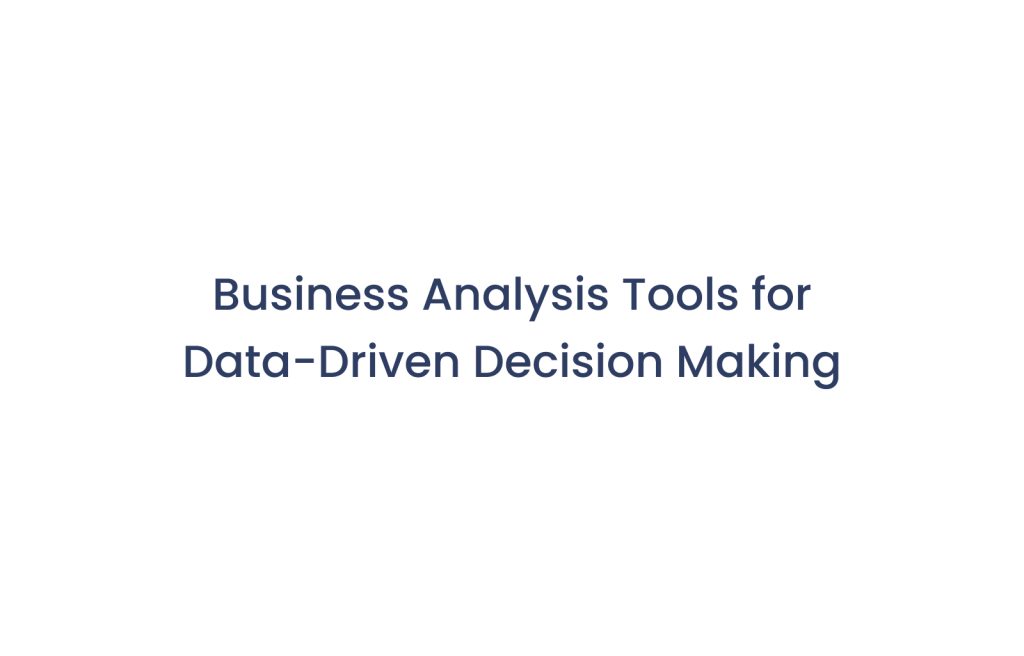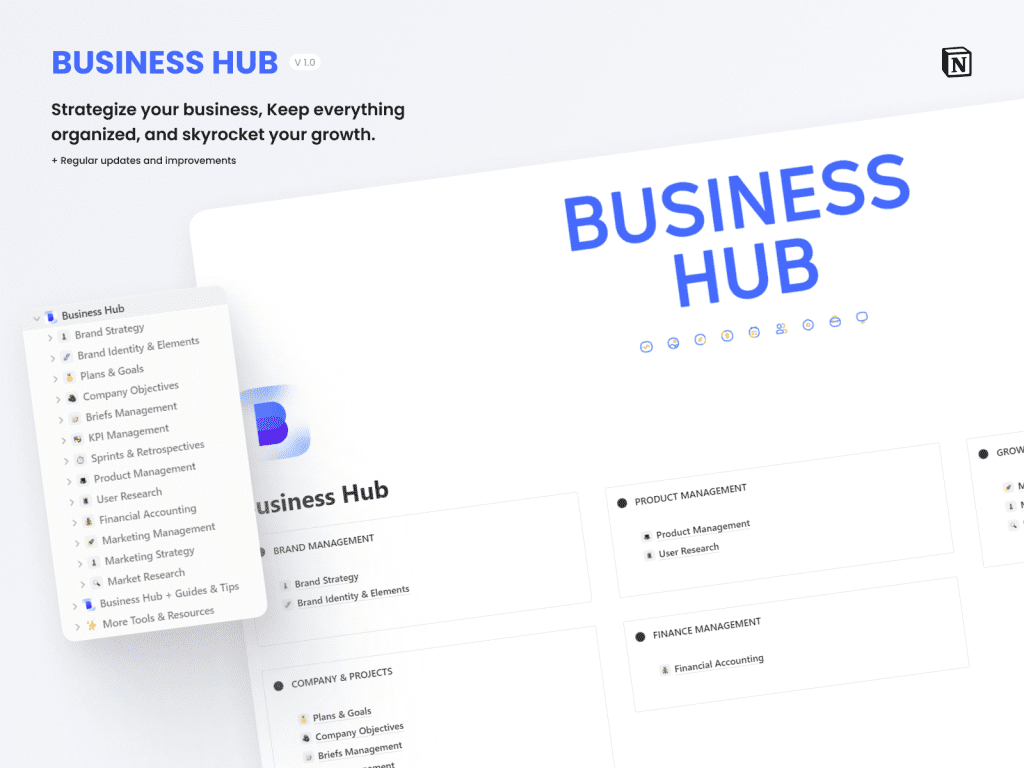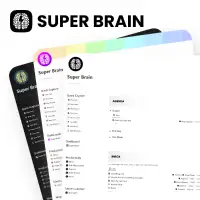Business Analysis Tools for Data-Driven Decision Making

In today’s data-driven business landscape, making informed decisions based on accurate and relevant information is crucial for success. To harness the power of data, businesses rely on various business analysis tools that help them collect, analyze, and interpret data, leading to better decision-making processes. These tools empower organizations to identify patterns, trends, and opportunities, ultimately gaining a competitive edge in the market. Let’s explore some essential business analysis tools that facilitate data-driven decision making.
Discover the power of data-driven decision making with Business Analysis Tools. Unleash the potential of these tools to extract valuable insights, optimize processes, and boost overall performance. Elevate your business strategy by harnessing the capabilities of data analysis for informed and effective decision making.
1. Data Visualization Software
Data visualization tools allow businesses to create visually compelling representations of complex data sets. These tools use charts, graphs, and interactive dashboards to present information in a more understandable and insightful manner. Leaders and decision-makers can quickly grasp trends and patterns, enabling them to make well-informed choices. Popular data visualization tools include Tableau, Power BI, and Google Data Studio.

2. Business Intelligence (BI) Platforms
BI platforms gather, integrate, and analyze data from various sources to provide comprehensive insights into a company’s performance. These tools offer real-time analytics, ad-hoc reporting, and data mining capabilities. Business intelligence platforms help organizations monitor key performance indicators (KPIs), identify market trends, and optimize operations. Examples of BI tools are IBM Cognos, QlikView, and Oracle BI.
3. Statistical Analysis Software
Statistical analysis tools assist businesses in exploring and interpreting data using advanced statistical techniques. They help uncover relationships between variables, perform hypothesis testing, and make predictions. These tools are invaluable for businesses conducting market research, analyzing survey data, or performing data-driven experiments. Some well-known statistical analysis software includes SPSS, SAS, and R.
4. Customer Relationship Management (CRM) Systems
CRM systems store and manage customer information, interactions, and preferences. They offer valuable insights into customer behavior, buying patterns, and trends. By analyzing this data, businesses can personalize their marketing strategies, improve customer engagement, and increase customer retention. Popular CRM platforms include Salesforce, HubSpot, and Zoho CRM.
5. Predictive Analytics Tools
Predictive analytics tools leverage historical data and machine learning algorithms to forecast future trends and outcomes. Businesses use these tools to anticipate customer preferences, optimize pricing strategies, and identify potential risks and opportunities. Predictive analytics empowers decision-makers to be proactive rather than reactive in their approach. Well-known predictive analytics tools are RapidMiner, Alteryx, and IBM SPSS Modeler.
6. Financial Analysis Software
Financial analysis tools enable businesses to analyze and interpret financial data to assess their financial health and performance. These tools aid in budgeting, forecasting, and financial planning. They are essential for evaluating investment opportunities and assessing profitability. Some widely used financial analysis software includes QuickBooks, Excel (with financial modeling templates), and Sage Intacct.
7. Text Analysis Tools
Text analysis tools, also known as text mining or natural language processing (NLP) tools, analyze unstructured data from sources like social media, customer feedback, or online reviews. These tools help businesses gain insights into customer sentiment, market trends, and brand perception. Popular text analysis tools are Lexalytics, IBM Watson NLP, and RapidMiner.
8. A/B Testing Software
A/B testing tools enable businesses to experiment with different versions of websites, landing pages, or marketing campaigns to identify which performs better. These tools help optimize conversion rates and user experience, leading to more effective marketing strategies and improved customer engagement. Some A/B testing tools are Google Optimize, Optimizely, and VWO.
Conclusion
The use of business analysis tools has become an essential aspect of data-driven decision making in modern organizations. These tools empower businesses to transform raw data into meaningful insights, enabling leaders to make well-informed choices, identify growth opportunities, and respond quickly to changing market trends. By adopting these business analysis tools, companies can enhance their decision-making processes, stay ahead of competitors, and achieve long-term success in today’s data-centric business landscape.
Take a look at this decision making templates:
Business Hub for Notion
Your Business Hub, ENTIRELY in Notion. Tired of cobbling together multiple apps to form your Business? Me too. Business Hub lets you capture and organize everything inside of Notion – turning it into an all-in-one workspace.

Free Smarter Decision Making (10-10-10 Rule Template)
Why do we make decisions we regret? And how can we make better choices?
Making better decisions is not hard. You need to think about the long-term consequences instead of short-term emotions. To help you do this, you can use the 10-10-10 rule.


















